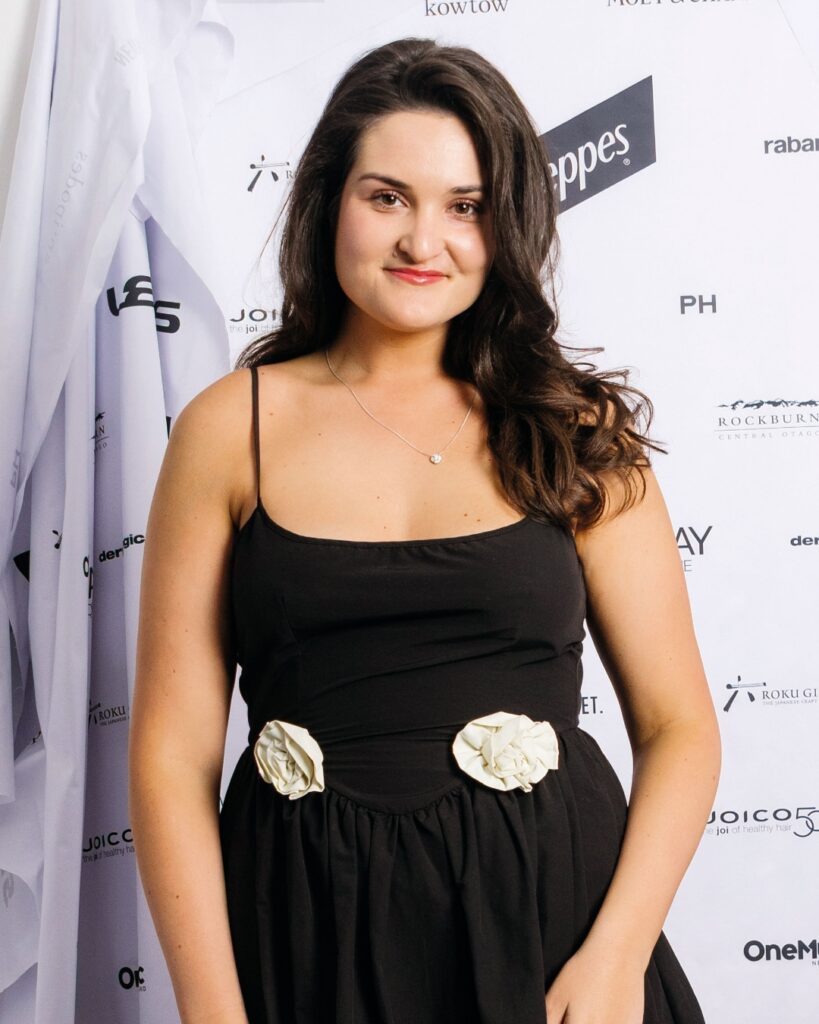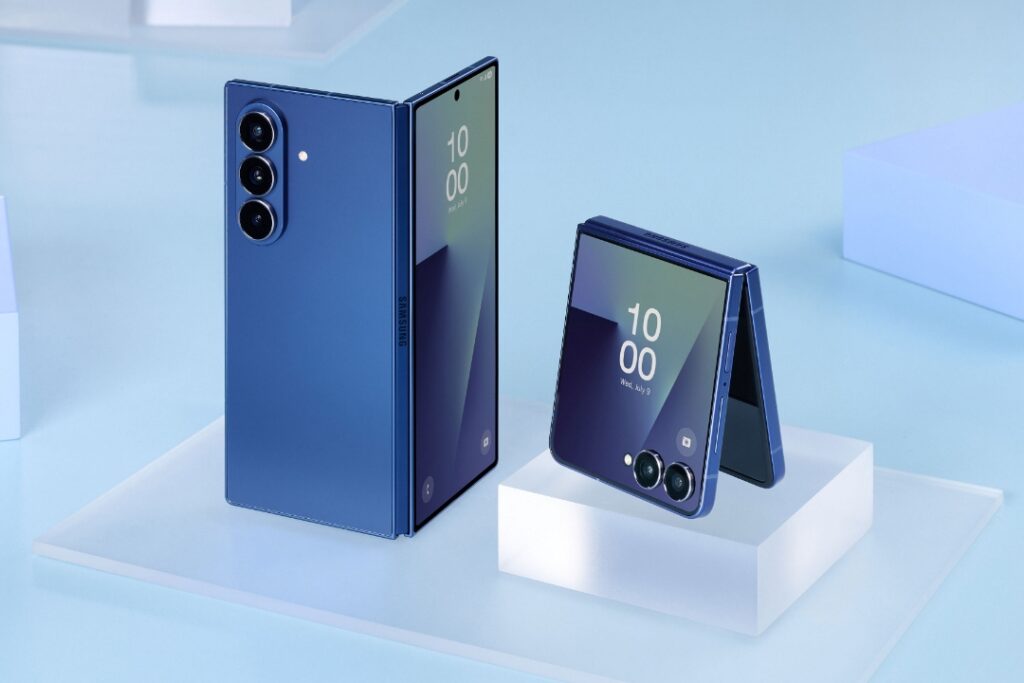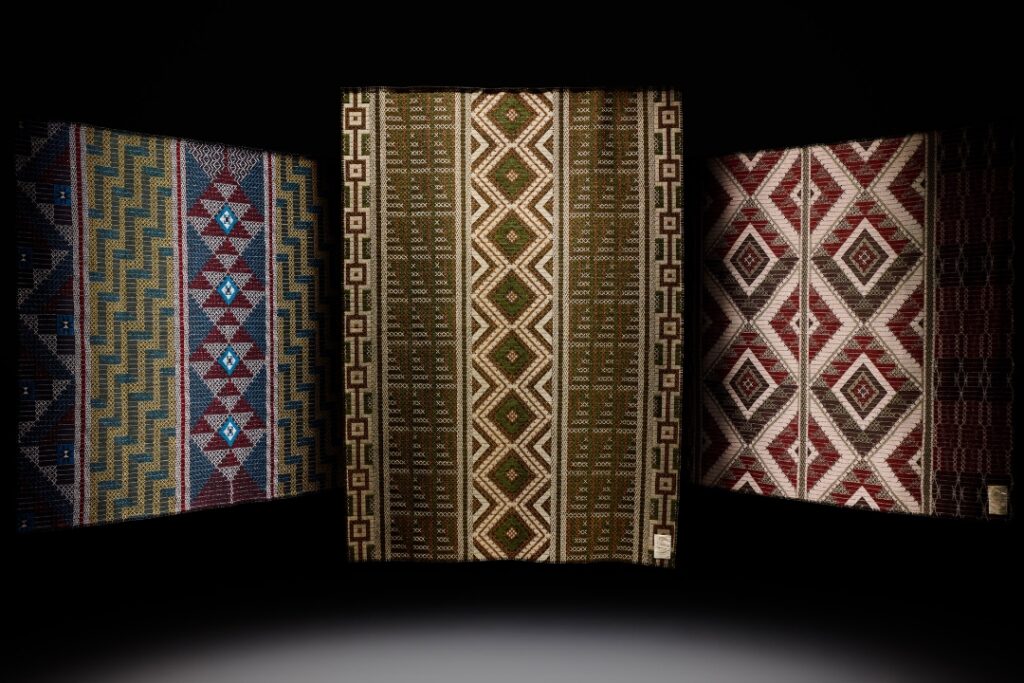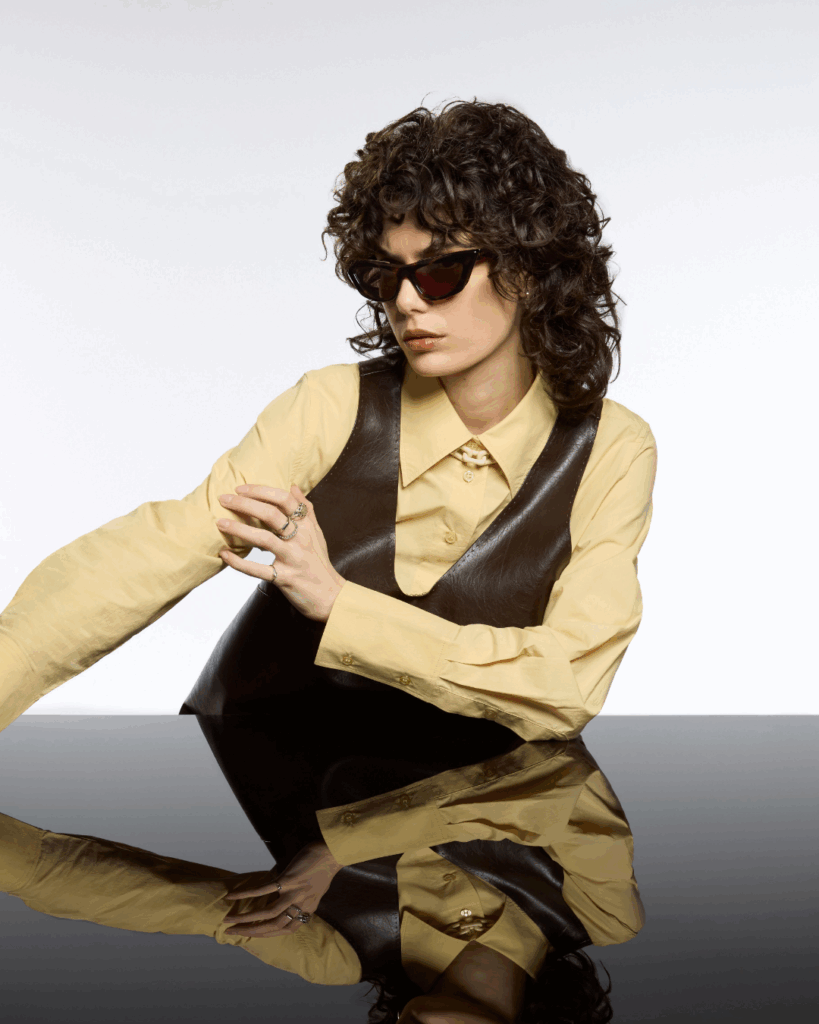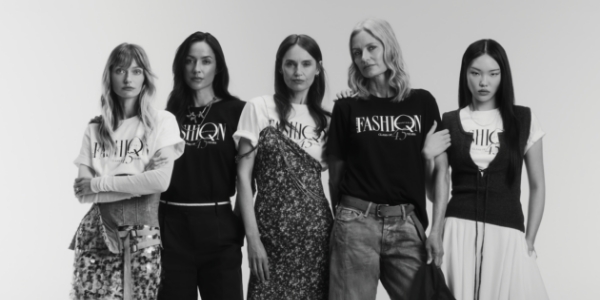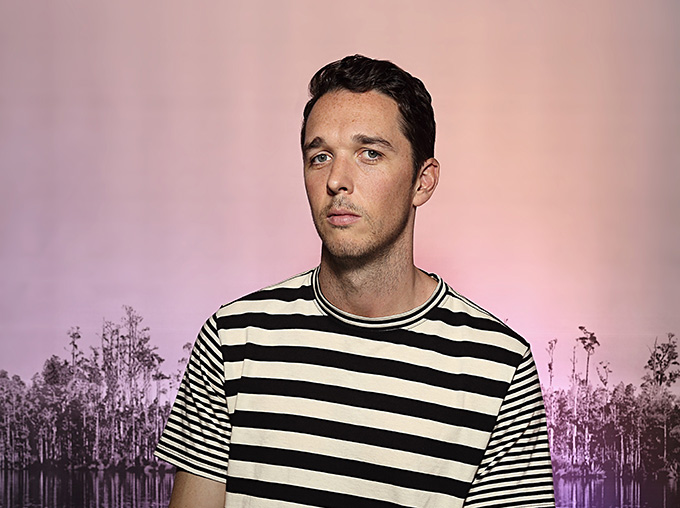
Luxury handbag label Deadly Ponies has the world at its feet – but that doesn’t mean the brand is in a hurry to take it on.
In an Eden Terrace warehouse that used to be an auto mechanic’s, Liam Bowden, designer of New Zealand’s most coveted handbags, is hard at work building a deeply old-fashioned empire. Entering the building is exactly like climbing into a late model Jaguar with plush leather upholstery. Quality smells good, and good things take time. Twelve years after starting luxury leather goods label Deadly Ponies, global expansion is quietly underway but they are not, says Bowden, in a rush. “It’s not an overnight thing and we’d prefer it not to be. Nothing we do is about making a splash or doing it for the sake of being noisy and loud.”
That kind of racket is best left to the machinery. The Eden Terrace site, where the company has been based for about a year, is classed ‘light industrial’, a useful designation that allows a leather-chomping clicker press to make some noise. Today the chap who operates it is away from the office. “He used to cut leather for Briarwood,” explains Bowden, affectionately. “Those older dudes – the craftsmen, are a dying breed. We can’t find anyone to replace them.” Lord knows, they have tried – offering apprenticeships and constant ads on their website and Trade Me. “It’s hard to get younger people interested in leather cutting. They want to design. Be superstars.”
Bowden, 33, is a bit of a superstar himself, an over-achiever in the fashion world, yet he leads a scrupulously private life. He lives in Kingsland with his partner, Steve Boyd, who is also the managing director of Deadly Ponies, but the couple doesn’t advertise their relationship status. Like other winning fashion couples (Mr & Mrs Karen Walker, Mr & Mrs Kate Sylvester) their working relationship is tight: “We support each other in almost every business decision,” says Boyd. But that’s as much as they want anyone to know about it; no home magazine spreads or matching hotel-bathrobe Instagrams for these two.
Nor, one suspects, a ton of free Deadly Ponies handbags for gushing bloggers, or starlets and stylists.
In a world of hashtag gratitude, it’s a refreshing approach. “That ‘new millennial’ business model is incredibly successful and works well for so many brands,” says Boyd. “However, a strong personal profile doesn’t necessarily equate to a successful business. You really need to have all the right ingredients to have longevity.”
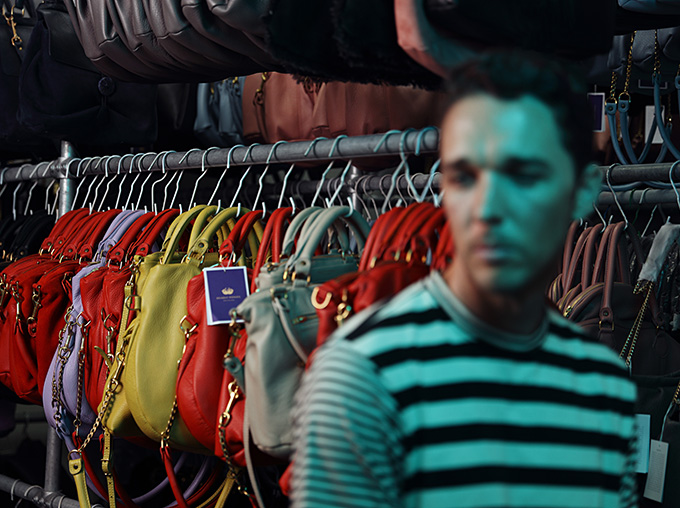
Bowden with some of the Deadly Ponies handbags he’s designed.
One of those ingredients is a killer brand name. Deadly Ponies could easily be a great band. But it’s the brand’s handbags that all sorts of ladies – from teens to mums to businesswomen – are addicted to. The bags are stylish, functional, pretty expensive, but built to go the distance. “I do get shocked with people that are coming in and buying their fifth handbag in two months,” says Bowden. “That’s excessive. But at the same time, I have people come up to me and say, ‘Your bags have such great resale value, it’s just like buying gold.’ And so I go, well, that’s not the end of the journey for that product. They’re leather. They’ve been made to last, they will get passed down to people who might not be able to afford a full-priced bag but can afford them secondhand.” The important thing, for Bowden, is that he isn’t making pieces for the landfill. “We want to create things that people love and that they can understand the value of, that need to be passed down or given away. You can’t just throw it away.”
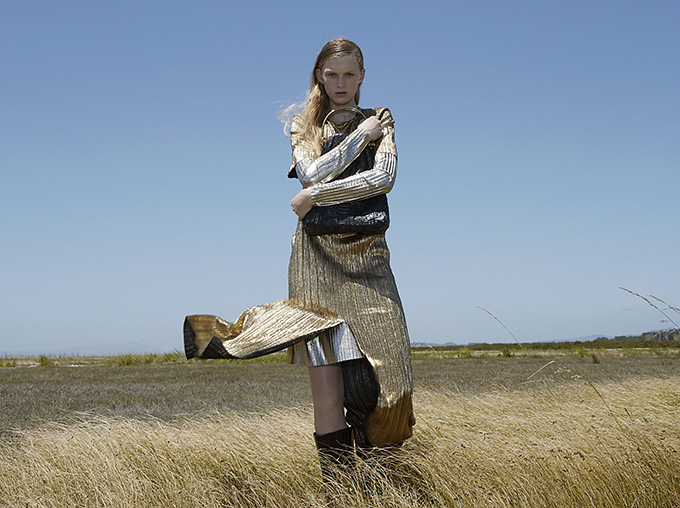
Deadly Ponies bags are highly coveted.
Private, modest, thoroughly decent; shaking Bowden’s hand was like putting mine in a vice. “Kneading leather seams is a constant workout,” he says, with a rascally grin. He’s a softly spoken slip of a thing in his fine merino sweater and understated sneakers, but at a guess, steely and determined underneath. “Yes,” agrees partner Boyd, “He has incredible vision combined with wicked humour. They are traits that bring out the best in other people.”
The entire staff and operations of Deadly Ponies are housed under one roof. The space is generally open-plan but divided into zones. On one side, a fleet of gorgeous, willowy young men and women double as receptionists, publicists and accountants, and on the other, the production zone houses an effortlessly cool Korean designer, an assortment of machinists and quality checkers, and one young lady who was busy doing something mysterious with handbag zips and a Bic lighter (even after I had enquired as to what it was, I was none the wiser.) Perhaps I had caught them on a quiet day, or on a tea break, but they all seemed ridiculously relaxed and content. “We normally produce the bags in batches of 10, in an effort to keep it exciting,” says Bowden. Gone are the days when he could make and quality check every bag himself: “It’s been a hard thing to learn to let go.”
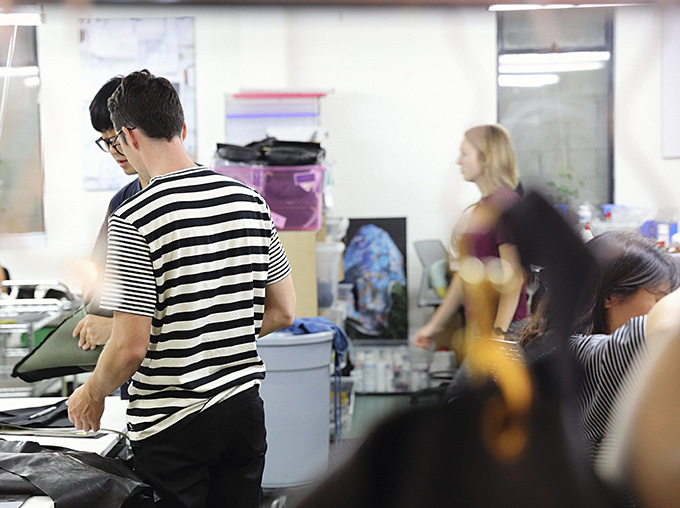
Inside the Eden Terrace warehouse where the Deadly Ponies range is designed and made.
Doing it yourself, making things by hand and working hard, are family traits. Liam’s brother Dominic Bowden – reality television’s king of the pause – is famously conscientious. Their parents, Mark, a civil engineer, and Siobhan, who works for an audiology company, live in a ramshackle Mount Albert villa they’ve been doing up, on their own, “painting, sanding, everything,” for at least 30 years (Bowden says his parents would “love it!” if I named them in the story). “For all my childhood there was Gib everywhere. I’d draw on the walls and the floors. There’d be concrete mix everywhere too. That was my sandbox.” Renovations continue to this day. “It’s an ongoing process. I’m trying to get them to move out and downsize but that’s not going to happen.”
Bowden grew up Catholic, attending church every Sunday and Sacred Heart College, in Glen Innes.
“It’s brought values, I guess, that they teach, about being kind to people, being moral, treating people with respect.” His family remains “really close”. His sister, Francesca, a digital comms whizz who started up a raw coconut water business called Cocoloco, lives on the same street as Mum and Dad, and both brothers live one or two suburbs over. “We catch up and hang out all the time.”
Lots of people have asked Bowden how one family can produce three successful, creative siblings, and he thinks it might be down to what his parents didn’t do. “My parents have never really driven us to need to succeed, they’ve just encouraged us to do things that we enjoy.”
But they also demonstrated a phenomenal work ethic. “They were doing up this monstrous house, all by themselves, and then would go to work, come home, do it at the weekends. We learned to work, work, work, to enjoy it and for it to be part of life. I’ve never enjoyed sitting around and doing nothing. I’d always rather be making something or working on a project.”
Handbags, to Bowden, are not fashion accessories but objects that he makes. “That’s sometimes where I get distracted.” He recently designed a range of belts made from carved resin blocks that hinged around the waist like “one of those old wooden toys, almost like Rubik’s Cubes…” But when the samples came back everyone said, “What the hell is the market for a robotic-looking bracelet you can wrap around your arm or waist?”. That was the end of that.
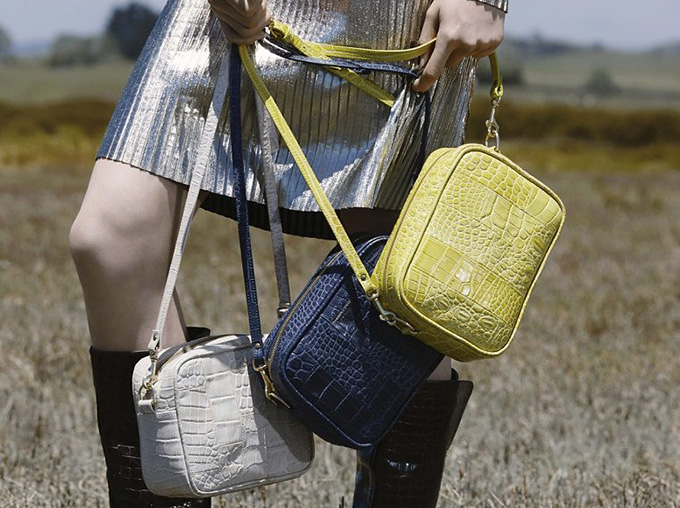
Mr Teddy Crocotile bag in gull grey, nightshade and wasabi, from Deadly Ponies’ new ‘Yingo Yango’ autumn/winter 2017 collection.
The new Deadly Ponies collection, one of five or six Bowden designs in a year – which adds up to about 500 pieces every year – is called ‘Yingo Yango’, and boasts vibrant furs, sci-fi patchwork croc-embossed leather, and sculptural shapes. There’s a calfskin bag dyed black and wasabi – a green that is “definitely not chartreuse”. The pieces go out to stockists in Auckland, Wellington, Christchurch, Sydney, Melbourne, Perth, San Francisco, Kansas, Bath and Tokyo. In fact, Bowden’s handbags like to travel more than he does. He recently got back from six weeks in Europe and America, a trip that was way too long. “I was really badly sick by the time I got back. I want to just hibernate now. It’s good to be home.”
Manufacturing everything locally and ethically in an age of Bangladesh sweatshops isn’t easy. No one in New Zealand dyes leather anymore, leaving Bowden no choice but to send it to Italy. “It’s definitely sad. A couple of years ago I was sadder about it, really disheartened, thinking, what do we do? Now we’ve realised that to survive we have to do a mix of both [local and international production processes], and that’s not necessarily bad. It’s just how it has to be to not shut down ourselves.”
This article was first published in Paperboy magazine. Follow Paperboy on Twitter, Facebook, Instagram and sign up to the weekly e-mail


